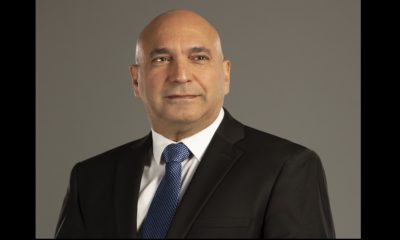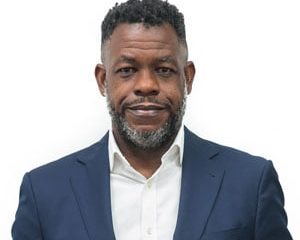………………………….And Charting the succession plan that got them there.
There are Boomers II or Generation Jones, born who were born 1955 to 1965, they build the foundation planted the seeds of corporate Jamaica and nurtured it…fast forward to 21st century and its time for change of guard.
In this era of rapid evolution, fast pace technology, and with the world being shrunk to a global village, corporate Jamaica is seeing sweeping change in its leadership.
It is the Generation X who were born 1966-1976 – the young, suave and tech savvy – taking the baton from the boomers and anchoring the run. Their dynamism is evident by the fact that they are dominating the Businessuite Top 20 CEO list for 2010. They are:
- Christopher Barnes
- Christopher Levy
- Jeffrey Hall
- Patrick Hylton
- Donovan Perkins
- Keith Duncan
- Stephen Facey
- Michael Bernard
- Anya Schnoor
- Alan Barnes

Patrick Hylton Group President and CEO of National Commercial Bank Jamaica.
Internationally, they are sometimes referred to as the “lost” generation; this was the first generation of “latchkey” kids, exposed to lots of daycare and divorce. Known as the generation with the lowest voting participation rate of any generation, Gen Xers were quoted by Newsweek as “the generation that dropped out without ever turning on the news or tuning in to the social issues around them.”
In Jamaica they are running some of the largest and most profitable companies in the Caribbean lead by Patrick Hylton Group President and CEO of National Commercial Bank Jamaica.
It’s interesting to note that four of the eleven members on the list assumed the CEO position from their parents. These included Christopher Levy, Jeffrey Hall and Stephen Facey from their Father and in the case of Keith Duncan his mother.
The others were handpicked and carefully groomed for the top spot.
 But in this coveted list, there is absence of an equitable number of females. Anya Schnoor Businessuite top CEO for 2008 is the lone female there. (Tech CEOs in 2011: Where Are the Women? In this issue)
But in this coveted list, there is absence of an equitable number of females. Anya Schnoor Businessuite top CEO for 2008 is the lone female there. (Tech CEOs in 2011: Where Are the Women? In this issue)
According to internationally published data we see where Gen Xers are arguably the best educated generation with 29% obtaining a bachelor’s degree or higher (this is 6% higher than the previous cohort). And, with that education and a growing maturity they are starting to form families with a higher level of caution and pragmatism than their parents demonstrated. Concerns run high over avoiding broken homes, kids growing up without a parent around and financial planning.
SUCCESSION PLANNING
In an article titled, A Further Look At The Success Of Succession Planning written by Deon McLennon of Stocks and securities Jamaica, published in Jamaica Observer, suggested that “Succession planning is one of the most intricate challenges an organization will ever face. Few events in the life of a company are as critical, visible, or stressful as the transition of leadership. The eyes of every stakeholder — shareholder, employee, customer and supplier, are focused on how the baton changes hands. This transition reveals the character and effectiveness of the incumbent leaders and the organisation.”
McLennon goes on to say that “Established and new organizations have been combating the looming leadership succession predicament by identifying and developing the internal talent needed for key executive positions.”

Jeffrey Hall
For example, he cites the case of two local firms who have not been outdone in this respect. “In June 2007, after 28 years of service at Jamaica Producers Group Ltd (JP), Dr Marshall Hall, former CEO of the Company, handed the control to his son, Jeffrey Hall. Jeffrey was the Business Development Manager at the time and sat on JP’s Board since March 2004. Prior to that, he was the Divisional Director for Bananas. Hall was mentored by his father for many years, and knew the ins and outs of the company by the time he was nominated to lead the firm.”
Through effective succession planning a culture of strong leadership will be developed throughout the firm whereby employees show effective leadership at all levels. GraceKennedy Ltd (GK) understands this, and has been developing its succession plan since at least 2006. In 2008, it announced that it had implemented a structured succession plan for all senior management functions across the group. The Company has been transparent about Douglas Orane’s retirement as Chairman and CEO of the Group. Though no date has been set yet for his departure, investors are not perturbed, as they have been kept in the loop about GK’s succession plan.
TOO YOUNG TO LEAD?
The question some ask is whether these individual should be handed the reins of such power at such an early age. Al Edwards, business editor of Jamaica Observer recently wrote the following view on age and leadership.
“On the world political stage, the likes of Barack Obama, David Cameron and Julia Gillard of Australia are relatively young leaders, all under 52. In the corporate world, Steve Jobs of Apple recently passed at 56, having founded his company 35 years ago. Jeffrey Immelt succeeded Jack Welsh at General Electric at 44 in 2000. Today he is 56, having spent 11 years in the top job. The social networking site Facebook was formed by Mark Zuckerberg in 2005. Today, at 27, he serves as its president and CEO. American economist and central banker Timothy Geithner was appointed as United States Secretary of the Treasury in 2009 at the age of 48. Indra Nooyi became President and CFO of PepsiCo at 45 back in 2000, rising to the CEO position six years later. At 47, Wehby’s ascension is timely. He is now a part of this corporate zeitgeist and will make GraceKennedy a 21st century corporation with a footprint across the entire globe.”
But what is the secret of successful leadership transition and success. McLennon suggests…“Companies that have a history of successfully transitioning leadership have a routine of grooming people for the top position.”
Edwards further adds. “The first step is to identify gaps between the required leadership and the existing talent pool. If the retiring Directors/Managers were responsible for sales dynamism, strict financial control, key account customer loyalty or engineering innovation, these critical skill gaps will need to be seamlessly filled”.
“The range of skills and employees’ competencies are then developed in the most cost effective ways to fill these gaps. As a result, strong leadership is built in the organisation which helps the business not only survive but thrive in the marketplace amid difficult conditions” Edwards opines.
Editors note. Businessuite was not able to independently confirm the age of the CEOs identified in this article up to press time and is therefore subject to change and update.

 Businessuite Markets1 week ago
Businessuite Markets1 week ago
 Businessuite News242 weeks ago
Businessuite News242 weeks ago
 Businessuite Markets2 weeks ago
Businessuite Markets2 weeks ago
 Logistics & Transportation2 weeks ago
Logistics & Transportation2 weeks ago
 Leadership Conversations3 days ago
Leadership Conversations3 days ago
 Businessuite Markets2 weeks ago
Businessuite Markets2 weeks ago
 Businessuite Markets2 weeks ago
Businessuite Markets2 weeks ago
 Businessuite News24 International3 weeks ago
Businessuite News24 International3 weeks ago










